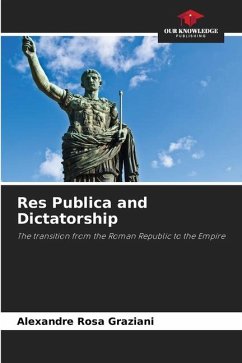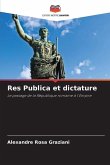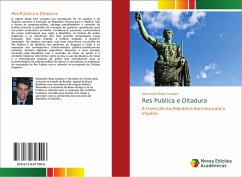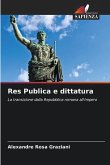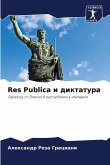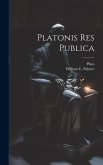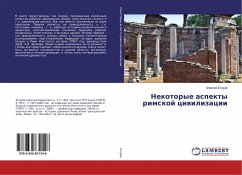The subject of this book is the conceptions of res publica and dictatorship during the transition from the Roman Republic to the Empire. In the form of a synthesis research, it covers in parallel the path of politics during the period of transition from republican government to autocratic power in Rome. It therefore considers the characteristics of the institutional body that governed the Republic, the facets of dictatorial power, and the influences of the two major figures in this transition: Julius Caesar, the dictator, and Octavian Augustus, the first emperor. From the main objective, which is based on an analysis of the Res Publica and dictatorship in the governments of Augustus and Caesar and an exposition of the consequent Roman political-constitutional transformations, come specific objectives: to describe the new situation faced by the Republic with Caesar's rise to power and the historical context; to determine how Caesar's dictatorship and the gradual centralisation of power contributed to the transformations in the political system of the time; and to characterise the changes in the conception of Res Publica with the advent of Octavian Augustus' principality.
Bitte wählen Sie Ihr Anliegen aus.
Rechnungen
Retourenschein anfordern
Bestellstatus
Storno

